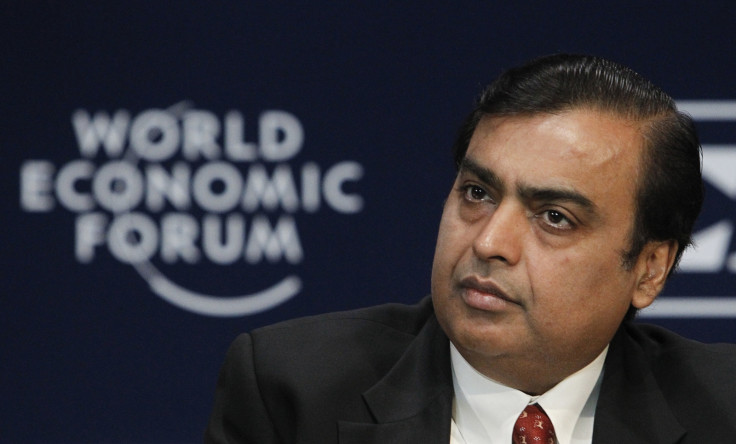How much is India's richest man Mukesh Ambani worth?
The industrialist is now eyeing the highly competitive Indian telecoms market.

Mukesh Ambani, MD and chairman of Reliance Industries Limited (RIL), inherited the business from his father, late Dhirubhai Ambani, and played a pivotal role in making it India's largest private sector enterprise.
His dramatic success of has led him to become the country's richest man with an estimated net worth of $30.5bn.
Reliance Industries, which started as a clothing fabrics producer, is now a major player in sectors like oil and gas, petrochemical product manufacturing and retail.
Mukesh has managed to successfully carry forward his father's legacy and contributed immensely in the rise and rise of Reliance Industries. One of his crowning achievements was the establishment of the world's most profitable oil refinery based in the Indian state of Gujarat.
Now even at the age of 60, it seems Mukesh is not done yet as he eyes to capture a lion's share in India's highly competitive telecommunications sector with "the world's biggest start-up" Reliance Jio.
At a Glance
• Age: 60
• Birthplace: Aden, Yemen
• Marital Status: Married to Nita Ambani
• Children: Akash, Isha, and Anant Ambani
• Net Worth: $30.5bn
• Ranked by Forbes as the richest Indian and the 20th richest person in the world
• Ranked No.24 on the Bloomberg Billionaires Index
• Owns the world's largest oil refinery based in Gujarat, India
• Lives in a Mumbai property valued at $2bn
• Stanford MBA dropout
The expansion of RIL
Mukesh's father Dhirubai was once a gas station attendant in Yemen, who upon returning to India successfully established Reliance Industries in 1966. Mukesh grew up with his brother Anil and sisters Dipti and Nina in a modest housing complex based in Mumbai.
Dhirubai, initially operating from a rented office desk, managed to obtain import and export licenses for nylon, rayon, and polyester. The raw materials were used to create clothing fabrics under the 'Vimal' brand, a well known name in the Indian subcontinent.
Dhirubai had larger plans for diversifying his enterprise and he summoned Mukesh back from Stanford in 1980, when the young heir was halfway through his MBA course. Mukesh had previously obtained a Bachelor's degree in chemical engineering from the Institute of Chemical Technology in Mumbai.
The import substitution industrialization policy by the government of India meant Mukesh was tasked with developing an in-house yarn plant that would significantly cut down costs from import tariffs. Reliance industries eventually further expanded into manufacturing polyester ingredients and plastics.
In 1986, Mukesh and his brother Anil Ambani took control of the company's day to day operations after their father Dhirubai suffered a stroke.
In 2002, Dhirubai Ambani passed away and a few years after that a bitter feud had broken out between Mukesh and Anil over ownership of the Reliance conglomerate. Ultimately, Mukesh was allocated the ownership of Reliance Industries and the Indian Petrochemicals Corporation Limited.
Anil got the telecommunications, power, entertainment, and financial services divisions under the Anil Dhirubhai Ambani Group.
Reliance Jio
Mukesh Ambani's Reliance Jio will now compete with his brother's telecommunication services. The newly launched firm has seemingly gained a strong ground against rivals such as British telecom giant Vodafone and Mumbai-based Idea cellular.
During the launch phase, Reliance Jio offered free call and data services for almost eight months, which left competitors either trying to keep pace or scurrying out of the market, which is worth $37bn a year.
Once the offer came to an end, up to 100 million users of the service signed up for various paid plans in order to continue their usage. A company official mentioned that they had already secured 50% of the set target for Jio Prime membership before the offer period concluded.
At the National Association of Software and Services Companies (NASSCOM) summit in February 2017, he said that data would be the "next oil". He further added that the convergence of the physical, digital, and biological sciences will bring humanity "at the doorsteps of the fourth industrial revolution."
Mukesh also identified the need for India to access cutting edge digital infrastructure, and convert the data generated from a 1.3 billion-strong population into intelligence.
© Copyright IBTimes 2024. All rights reserved.





